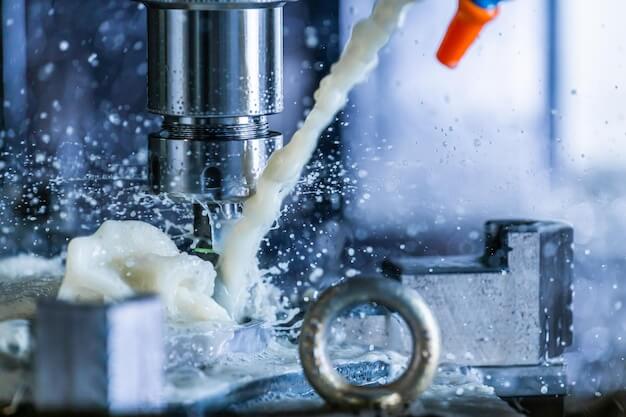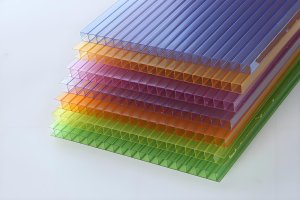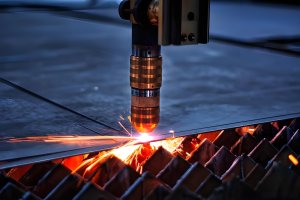Introduction to CNC Machining in Medical Device Manufacturing
The industrial process of computer numerical control (CNC) machining plays a pivotal role in the creation of medical devices. Essentially, CNC machining is a method used in manufacturing where pre-programmed computer software directs the movement of machinery and tools. Precision, reliability, repeatability, high speed, and ability to use various materials are some of the numerous advantages it offers for complex geometries and tight tolerances required by modern medical devices. In this procedure, metals like titanium and cobalt-chrome alloys receive considerable attention because of their strength, bio-compatibility, and resistance to corrosion, making them ideal for surgical instruments, orthopedic implants, dental prosthetics, and others.
Understanding Titanium Alloys and Cobalt Chrome Alloys
Titanium alloys are highly valued in the medical field due to their excellent strength, low weight, and biocompatibility. Typically composed of titanium mixed with other metals like aluminum or vanadium, these alloys provide a high degree of corrosion resistance and can withstand substantial tensile stresses. Crucially, they’re also non-toxic and resistant to bodily fluids – qualities that make them ideal for implants and orthopedic devices.
Moving on to cobalt chrome alloys, these materials blend cobalt, chromium, and molybdenum — often with additions of nickel. What sets cobalt chrome apart is its hardness and wear endurance. In addition, these alloys exhibit incredible mechanical properties even at high temperatures. A key advantage within medicine is cobalt chrome’s superior compatibility with magnetic resonance imaging (MRI) tests. Yet, it’s worth noting that although cobalt chrome excels in many areas, it weighs more than titanium, which may factor into decisions regarding its use.
Analysis of Titanium Alloys for Medical Devices
Titanium alloys are widely utilized in medical device manufacturing due to their exceptional biocompatibility, mechanical strength, and corrosion resistance. These alloys are commonly employed in the production of bone replacements, prosthetics, and various surgical instruments, highlighting their significance in the medical industry.
Evaluation of Cobalt Chrome Alloys in Medical Device Manufacturing
Cobalt chrome alloys are deemed highly suitable for the manufacturing of various types of medical equipment due to their unique properties. The chief benefits of cobalt-chrome alloys include exceptional resistance to wear and corrosion, high strength, and biocompatibility, which rank them among ideal materials in orthopaic applications.
- Resistance to Wear & Corrosion: This significant property facilitates longevity and durability of medical devices, a critical consideration in implants designed to last several years in challenging bodily environments.
- High Strength: Another benefit resides in its high mechanical strength which enables the creation of slim yet strong implants optimizing comfort without compromising on structural integrity.
- Biocompatible Nature: Perhaps most importantly, cobalt-chrome’s compatibility with human bodies minimizes chances of adverse reactions or rejection post-implantation.
An exemplar medical device made from cobalt chrome alloy is the hip replacement implant. Such joint prostheses often require all of the mentioned attributes: wear-resistance, superior tensile strength, and biocompatibility, making cobalt-chrome an apt choice.
Comparison between Titanium and Cobalt-Chrome Alloys in Medical Devices Manufacturing
In the production of medical devices, both titanium and cobalt-chrome alloys pose unique advantages; however, their properties vary significantly affecting manufacturers’ preferences. When it comes to machining, titanium offers flexibility due to its lower modulus of elasticity, while cobalt-chrome is more challenging to machine owing to its hardness and wear resistance.
- Biocompatibility: Both materials are biocompatible; however, titanium is usually better tolerated by the body and exhibits a lower risk towards triggering allergic reactions.
- Strength-to-weight ratio: Titanium has an excellent strength-to-weight ratio making it ideal for implants like hip and joint replacements. On the other hand, cobalt-chrome alloys provide a higher degree of rigidity suitable for dental prosthetics or cardiovascular stents.
- Material Preference: The choice between Titanium and Cobalt-Chrome depends on the specific medical application. For instance, because of its weight and strength benefits, orthopedic surgeons often prefer titanium for bone-anchoring applications. However, dentists may lean towards cobalt-chrome alloys due to their superior corrosion and scratch-resistant properties.
Key Takeaways: CNC Machining with Titanium and Cobalt Chrome Alloys for Medical Devices
In the medical device industry, understanding the value of different metal alloys such as titanium and cobalt chrome in Computer Numerical Control (CNC) machining is critical. Both metals have unique properties that make them suitable for various applications. For instance, the strength, low weight, and high corrosion resistance of titanium makes it preferable for orthopedic and dental implants while the wear-resistant nature of cobalt chrome alloy is ideal for prosthetic limbs or joint replacements.
- Titanium tends to interact well with biological tissues, reducing complications.
- Cobalt chrome alloys provide a higher degree of durability under stress, essential for devices like prosthetics.
By closely aligning the choice of metal alloy with the intended purpose of the medical device, manufacturers can deliver effective and durable solutions for patients. It’s vital therefore that this alignment remains at the forefront of decision making. As we’ve discussed throughout the article, the technical considerations when working with these materials are substantial and significant, emphasising the need for precise control offered by CNC machining processes within the context of medical manufacturing.
Other Articles You Might Enjoy
- High-Performance Alloys for CNC Machining: Cobalt Chrome vs. Nickel Superalloys
Introduction: Understanding CNC Machining and the Role of High-Performance Alloys CNC machining is a highly effective process applied in numerous industries such as aerospace, automotive, and medical technology. The abbreviation…
- The Advantages of Titanium Alloys in Aerospace Manufacturing
Aerospace Manufacturing and Materials In aerospace manufacturing, the key focus is on the fabrication of mechanical components designed for functions such as powered flight or navigation beyond Earth's atmosphere. This…
- Powder Metallurgy Materials: Stainless Steel vs. Cobalt Chrome
Introduction to Powder Metallurgy Materials Powder metallurgy materials play a vital role in various industrial sectors. Predominantly used for the manufacture of tools, these materials are compacted into solid parts…






